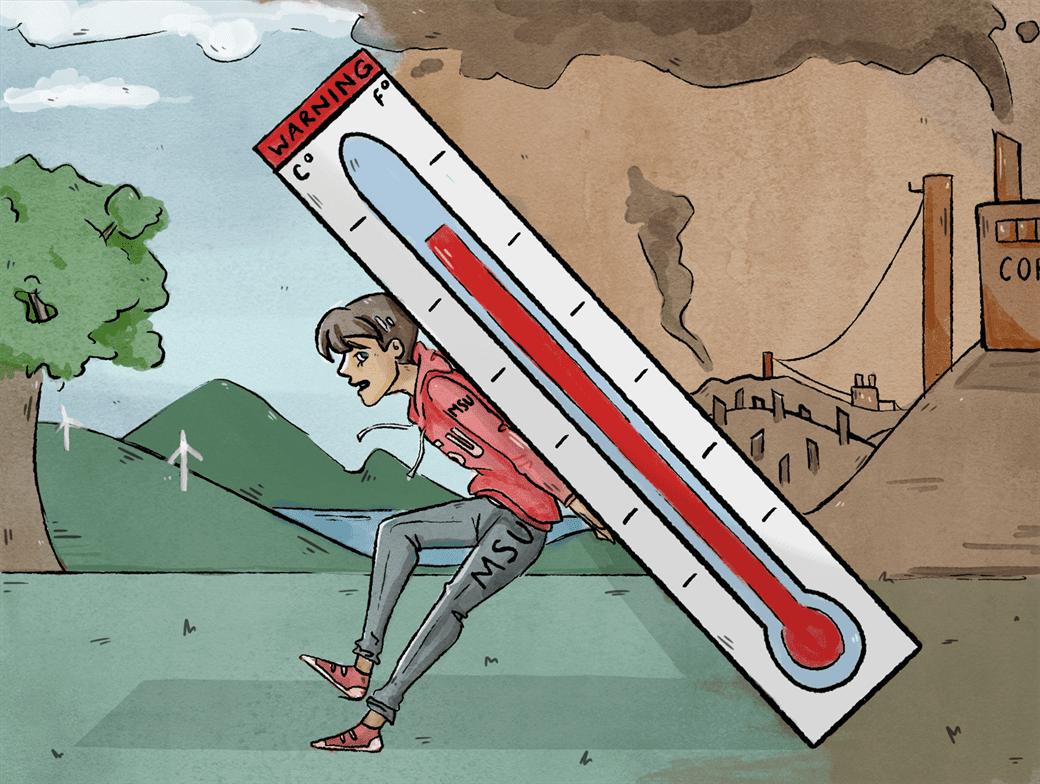Last week, Rutgers University sent out a press release announcing its official Climate Action Plan. The comprehensive, student-generated plan to combat the effects of the climate crisis includes a pledge to total carbon neutrality and full electrification of campus vehicles. Enabling this plan is the establishment of a permanent Office of Climate Action.
Such drastic and immediate actions signal Rutgers’ commitment toward addressing what is possibly the most important global issue of this century. As one of the nation’s foremost public research universities, Rutgers has set a high standard not only by taking action but by listening to the concerns of its student body. This is impressive news by any standard, but it begs the question of how competing schools plan to match up — namely Montclair State University.
Recently, Montclair State has taken steps that are beneficial to the future prospects of the planet, such as hosting conferences at its Clean Energy and Sustainability Analytics Center (CESAC) and partnering with PSE&G to find green energy solutions. However, this has little to do with the campus’ direct effects on the climate.
On Environment America Research and Policy Center’s list of top colleges working towards renewable energy, Montclair State is not even listed. Nor does it appear on the Princeton Review’s comprehensive Top 50 Green Colleges rankings alongside universities such as Cornell. Arguably, this is because any immediate action steps taken by Montclair State towards sustainability have not been sufficient.
One can hear the constant hum of energy from buildings on campus, accompanied by the roar of gas-powered landscaping equipment. While Montclair State is powered by self-generated electricity, the power plant itself provides energy sourced from natural gases. Ironically, the power plant also uses most of this electricity, according to Montclair State’s publicly accessible energy dashboards.
There are solar panels on campus, located in Parking Lot 60. This small solar field provides “a small amount of power to Alice Paul Hall in the Village [campus apartments].” According to the linked page above, these panels went online in 2011 thanks to a grant from the Board of Public Utilities, and apparently, none have been added since.
Campus transportation, namely the buses and shuttles, is surprisingly not electric. Instead, they run on low sulfur diesel fuel, which is still refined from crude oil despite being lower in toxic emissions. Charging stations are installed on campus for electric vehicles that most college students do not have, so why are the methods of transportation provided by the university itself not yet electric?
For a school intent on impressing the importance of clean energy upon the future generations it educates, Montclair State could be far more cogent about these values through its actions. If Montclair State is trying to be of the same rank as Rutgers in terms of reputation and R1 Research University status, this seems a pretty obvious standard to meet, and an important one regardless of motive.
It is, of course, understood that many of these issues take time to work toward resolving, such as achieving carbon neutrality. Nevertheless, a commitment, like the one made by Rutgers, signals not only a willingness to make that important effort but a transparent, clear promise that students may hold administrators to keep. There are more attainable, short-term goals, like eliminating fuel-powered vehicles from the campus fleet.
The climate crisis needs to be addressed directly and immediately. Montclair State’s responsibility to its students and the public should not exempt it from scrutiny on these matters but rather make it more liable to be held accountable for falling short.
To let your administrators know you are serious about a long-term sustainability commitment from Montclair State and other universities nationwide, you can visit 100% Renewable to make your voice heard. Learn more about the push for renewable energy on all college campuses at 100% Renewable and NJPIRG Students.



